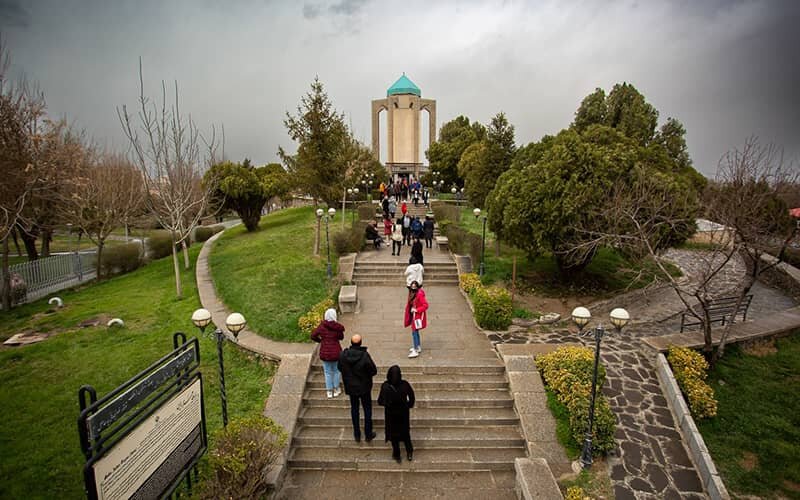Literary tourism still untapped in Hamedan

TEHRAN – Hamedan province holds an enormous potential to develop literary tourism, a local tourism official has said.
As Hamedan has many cultural, scientific, and artistic personalities, literary tourism can bring this province to national and international attention, Saheb Mohammadian explained on Tuesday.
Having a rich historical and cultural background as well as famous cultural and literary attractions, Hamedan can attract cultural tourists and Iranian literature enthusiasts, the official added.
Literary tourism is a type of cultural tourism and occurs when authors or their literature become so popular that people are drawn to either those locations associated with the author such as their birthplace, home, graveside, or those featured within their writings.
Known in classical times as Ecbatana, Hamedan was one of the ancient world’s greatest cities. Pitifully little remains from antiquity, but significant parts of the city center are given over to excavations. Ecbatana was the capital of Media and subsequently a summer residence of the Achaemenian kings who ruled Persia from 553 to 330 BC.
Hamedan has had many names: it was possibly the Bit Daiukki of the Assyrians, Hangmatana, or Agbatana, to the Medes, and Ecbatana to the Greeks. One of the Median capitals, under Cyrus II (the Great; died 529 BC) and later Achaemenian rulers, it was the site of a royal summer palace.
About 1220 Hamedan was destroyed by the Mongols. In 1386 it was sacked by Timur (Tamerlane), a Turkic conqueror, and the inhabitants were massacred. It was partly restored in the 17th century and subsequently changed hands often between Iranian ruling houses and the Ottomans.
Sitting on a high plain, Hamedan is graciously cool in August but snow prone and freezing from December to March. In summer, the air is often hazy.
Ali Sadr cave, Ganjnameh inscriptions, Avicenna Mausoleum, Hegmataneh hill, Alaviyan dome, Jameh mosque, and St. Stephanos Gregorian Church are amongst Hamedan’s attractions to name a few.
ABU/AM
Leave a Comment